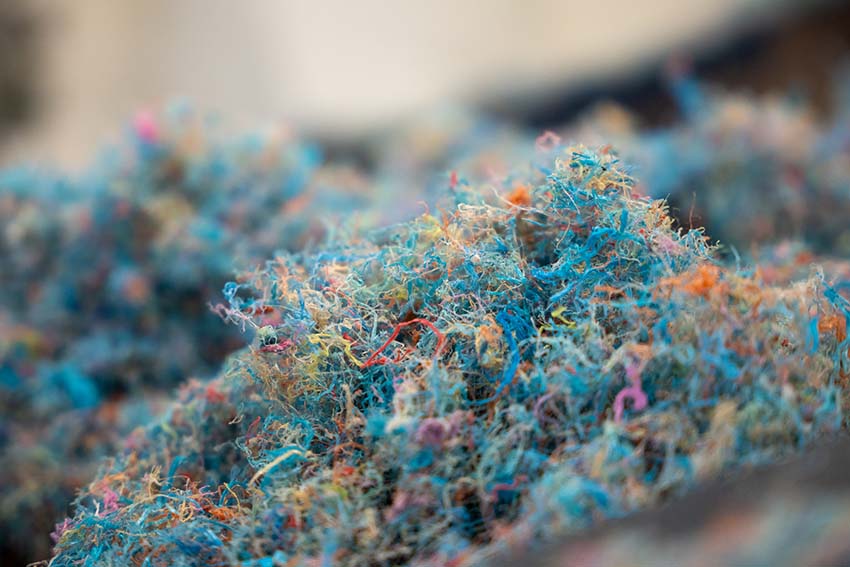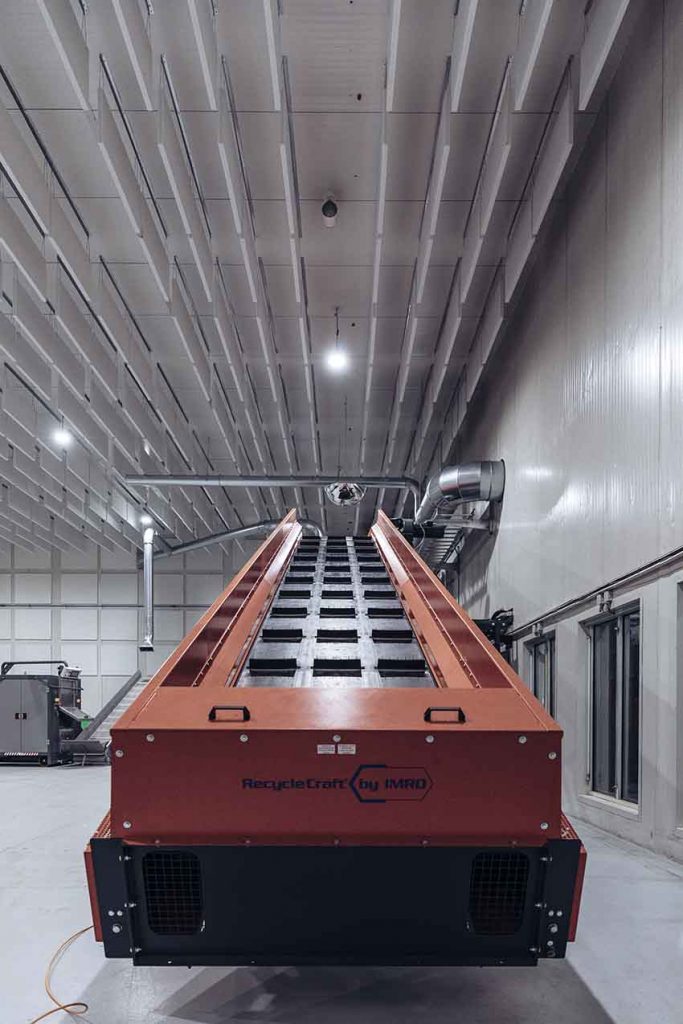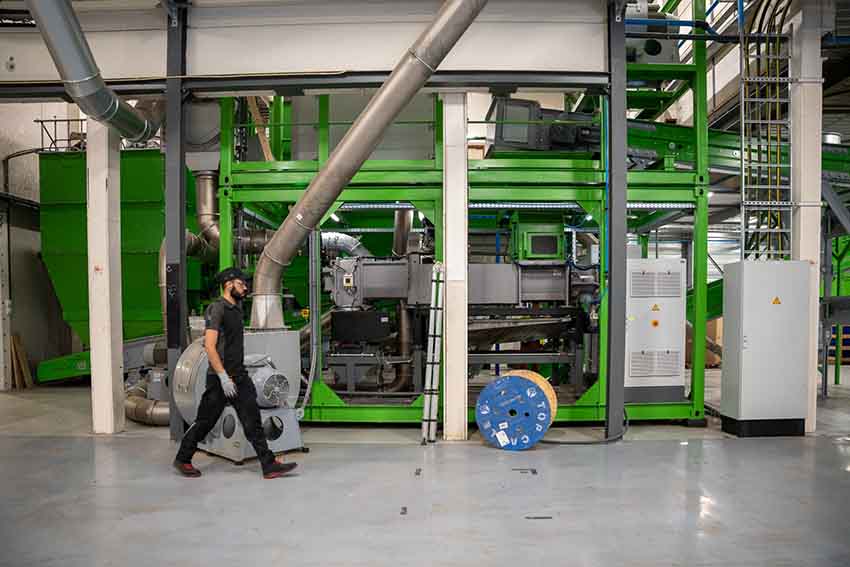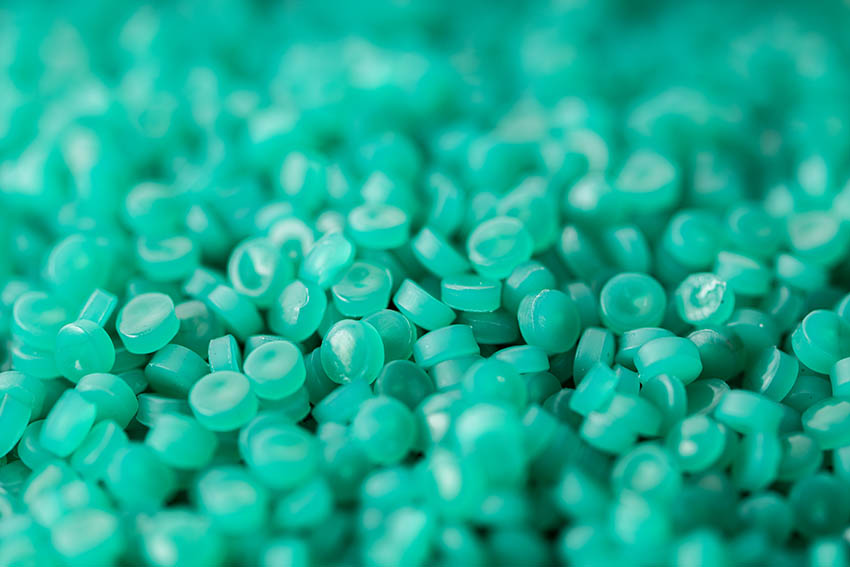Healix creates a circular future for plastic fiber waste by recycling discarded nets and ropes from fishing and farming, preventing plastic from ending up in ecosystems and instead using it as feedstock for the circular economy. The first Healix plant is based in the Netherlands, and is focusing on two types of plastic: homopolymers polypropylene and high-density polyethylene.
To produce their recycled granules, the company follows a three-step process. First, they reduce the fibers in size; then, they wash and dry the small particles to ensure they are clean. In the third step, the particles are melted, double-filtered to remove any remaining contamination, and processed into pellets.
Healix’s products are available for the global production chain and are suitable for both closed-loop and open-loop systems.
Easy Engineering: What are the main areas of activity of the company?
HEALIX: The main area of activity for the company is the recycling of discarded nets and ropes from fishing and farming into usable feedstock for the circular economy. Healix aspires to be the leading innovator in the field of plastic fiber waste management and recycling, with the goal of producing high-performance polymers comparable to virgin polymers.

The ambition is to set up recycling plants in places where a lot of plastic pollution occurs, for this purpose in Europe, France and Norway are being considered. France produces a lot of agricultural waste, while Norway has a significant fishing industry and many available nets. In the long term, Healix aims to set up factories at the mouths of the world’s most polluted rivers, such as those in Asia, to prevent plastic fiber waste from entering the oceans.
Besides recycling plastic fiber waste, we want to be a source of inspiration for other companies in the technical textile industry and support them in making the same positive changes towards a circular economy. We are convinced that, together with our partners, we will be able to close the loop and become part of the solution, not the pollution. Our partners include The Ocean Clean-up, Tama, LC Packaging, Epsotech and Schoeller Allibert among others. This way, we can jointly prevent nets, ropes, and other technical textiles from ending up in the ocean, landfills, or being burned.
E.E: What’s the news about new products?
HEALIX: Healix is always innovating and trying to find various sources of plastic fiber waste to recycle into high-quality polymers. Our commitment drives our ongoing exploration for new sources of plastic fiber waste. Beneath you can find our range of products, all these are new types of polymers and almost none have been seen on the European market for recycled plastic yet!

E.E: What are the ranges of products?
HEALIX: We have several post consumers recycled grades available either derived from the agriculture sector or maritime environment.
Agriculture:
- XPP-BT (Balertwine, agriculture ropes, FR);
- XPP-BB (Bigbags, Worldwide);
- XHD-NW (Netwrap, agriculture hay-wrap, FR);
- XHD-TN (Tulip nets, NL).
Maritme:
- XPP-MR (Maritime ropes, NO);
- XHD-FN (Fishing nets, NL).
E.E: At what stage is the market where you are currently active/ what can you tell us about market trends?
HEALIX: The concept of circular economy is gaining importance in the business world and there is a growing market for companies offering solutions for managing and recycling plastic waste. Healix B.V. is well-positioned to take advantage of this trend with their focus on recycling specific types of plastic and their innovative process for producing high-quality recycled polymers that can replace their virgin-counterparts.

The demand for recycled plastics is linked to the price of virgin plastics. In general, the demand for recycled plastics is often linked to the price of virgin plastics. When the price of virgin plastics is high, the demand for recycled plastics tends to increase, as manufacturers seek more cost-effective alternatives. Conversely, when the price of virgin plastics is low, the demand for recycled plastics may decrease, as manufacturers may be less motivated to switch to more sustainable options.
Although, there are other factors that affect demand such as regulatory requirements, consumer demand for sustainable products, and availability of recycled materials. Plastic producers are recognizing the importance of incorporating recycled materials into their supply chains and this shift is likely to create new opportunities for companies like Healix B.V. Overall, the market for players like Healix presents significant opportunities for growth and success.
E.E: What are the most innovative products marketed?
HEALIX: All Healix’s products are very innovative because all recycled polymers are of such high quality that they can serve as a direct substitute for virgin materials in the circular economy. We have developed an innovative three-step process that ensures the purity and consistency of our recycled granules, making them an ideal choice for manufacturers looking to reduce their environmental impact without compromising on quality. By using our granules, manufacturers can reduce their carbon footprint and support a more sustainable future.

Calculations show that within 5 years more than 120,000 tons of CO2 will be saved compared to the production of new polymers, this amounts to 24,000 tons of CO2 per year. Healix strives to emit zero CO2 and is therefore currently investigating all possible options to achieve zero emissions from the recycling of plastic fiber waste. A conscious choice has been made to invest in machines that are the most sustainable in terms of energy consumption.
Other ecological effects Besides the CO2 reduction calculated above, this project also ensures that less plastic is dumped in landfills, fewer animals get entangled in the ropes and nets or die because they eat pieces of this waste plastic. In addition, in the first 5 years 45,000 tons less fossil fuels (petroleum) will be used for the production of virgin plastic. The project also creates additional employment in the Netherlands and generates awareness within the entire technical textile industry.
E.E: What estimations do you have for 2023?
HEALIX: Healix is well-positioned to take advantage of the increasing demand for companies that provide effective solutions for managing and recycling plastic waste. With the increasing regulations on plastic products, there is likely to be more demand for their products. We aim to increase throughput in the plant and are optimistic about potential growth and expansion towards other parts of the world together with our partners. Additionally, there is a growing recognition among plastic producers of the importance of incorporating recycled materials into their supply chains, which is likely to create new opportunities for Healix.

